ARCHIVE: This material is no longer maintained and should be viewed for reference only
CCE Fellows
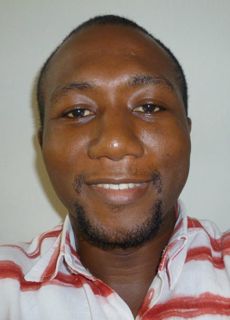 Alfred Ampah-Mensah's research interests are in classroom based studies. He is especially interested in mathematics classroom interactions and interaction in classrooms where the medium of interaction is different from pupils home languages. He has taught in all the levels of formal education in Ghana and believes that with a formal education system where there are structured and permanent walls, the attainment of quality education rests to a large extent on what happens in the classroom. Alfred is an advocate of school and classroom level leadership that empowers people to take initiative in creating the enabling environment for effecting learning in schools. He is currently coordinator of the Leadership for Learning programme in Ghana which is a collaboration between the Ghana Education Service (GES), CCE and the Institute for Educational Planning and Administration (IEPA), University of Cape Coast aimed at developing and researching initiatives to develop basic school headteachers' leadership capacity. Alfred Ampah-Mensah's research interests are in classroom based studies. He is especially interested in mathematics classroom interactions and interaction in classrooms where the medium of interaction is different from pupils home languages. He has taught in all the levels of formal education in Ghana and believes that with a formal education system where there are structured and permanent walls, the attainment of quality education rests to a large extent on what happens in the classroom. Alfred is an advocate of school and classroom level leadership that empowers people to take initiative in creating the enabling environment for effecting learning in schools. He is currently coordinator of the Leadership for Learning programme in Ghana which is a collaboration between the Ghana Education Service (GES), CCE and the Institute for Educational Planning and Administration (IEPA), University of Cape Coast aimed at developing and researching initiatives to develop basic school headteachers' leadership capacity.
|
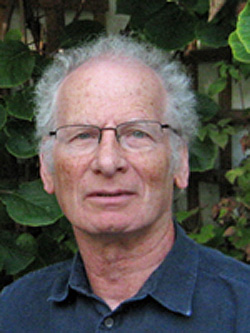 Professor Tony Booth is a Research Fellow at the Centre for Commonwealth Education. He has been researching, teaching and writing about participation and exclusion and the principled development of systems and settings in education for more than thirty years. His ideas are summarised within the 'Index for Inclusion; developing learning and participation in schools' (Booth and Ainscow, 2002, 2011) already translated into 39 languages, and recently radically revised. He is currently collaborating with a number of commonwealth countries, in 2013 working with teacher educators and State administrators in Gujerat and Andhra Pradesh to see how an Index for Inclusion might be developed in India. Tony is also working with the Ministry of Education in Swaziland to develop an adapted version of the Index for Inclusion, and is supporting other initiatives aiming to spread this work to other countries in Southern Africa. A website based Index for Inclusion Network will also be launched in 2013 to facilitate communication about the Index around the world and support dialogue about values based education, alliances across initiatives and curriculum reform. Professor Tony Booth is a Research Fellow at the Centre for Commonwealth Education. He has been researching, teaching and writing about participation and exclusion and the principled development of systems and settings in education for more than thirty years. His ideas are summarised within the 'Index for Inclusion; developing learning and participation in schools' (Booth and Ainscow, 2002, 2011) already translated into 39 languages, and recently radically revised. He is currently collaborating with a number of commonwealth countries, in 2013 working with teacher educators and State administrators in Gujerat and Andhra Pradesh to see how an Index for Inclusion might be developed in India. Tony is also working with the Ministry of Education in Swaziland to develop an adapted version of the Index for Inclusion, and is supporting other initiatives aiming to spread this work to other countries in Southern Africa. A website based Index for Inclusion Network will also be launched in 2013 to facilitate communication about the Index around the world and support dialogue about values based education, alliances across initiatives and curriculum reform.
|
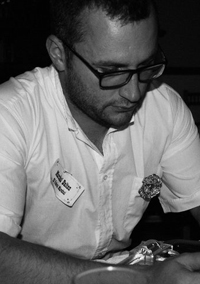 Adam Cooper is a doctoral student at Stellenbosch University in the Department of Education Policy Studies and Split-site Commonwealth Scholar in the Faculty of Education, University of Cambridge. His thesis looks at how young people from one low-income neighbourhood in Cape Town, South Africa learn through dialogue in different places. Adam’s interests include urban youth and education- as well as how these relate to inequality and subjectivity, gender and masculinities and forms of new media and communication. Adam has worked at a number of different research institutes in Cape Town, researching youth involvement in organised armed violence, xenophobic violence towards foreign nationals in South Africa and participatory research methodologies. He also worked as a researcher for an NGO in Cape Town for four years, the Extra-Mural Education Project, a project that partnered with forty township schools starting out of class time activities for young people and their families. Adam Cooper is a doctoral student at Stellenbosch University in the Department of Education Policy Studies and Split-site Commonwealth Scholar in the Faculty of Education, University of Cambridge. His thesis looks at how young people from one low-income neighbourhood in Cape Town, South Africa learn through dialogue in different places. Adam’s interests include urban youth and education- as well as how these relate to inequality and subjectivity, gender and masculinities and forms of new media and communication. Adam has worked at a number of different research institutes in Cape Town, researching youth involvement in organised armed violence, xenophobic violence towards foreign nationals in South Africa and participatory research methodologies. He also worked as a researcher for an NGO in Cape Town for four years, the Extra-Mural Education Project, a project that partnered with forty township schools starting out of class time activities for young people and their families. |
|
|
||
|
|
||
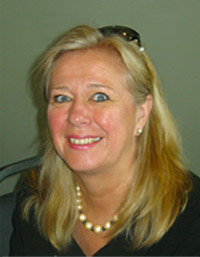 Alicia Fentiman, Research fellow at the Centre for Commonwealth Education, is a social anthropologist and has worked in sub-Saharan Africa extensively for over twenty years on a number of educational research projects and evaluations. She is currently working on two research projects within CCE: Leadership and Pedagogy in Tanzania and Gender in East Africa. Before joining the Centre she was awarded a DFID research grant (with Carolyne Dennis at the Africa Educational Trust) to examine alternative basic education in countries emerging from conflict. She has conducted numerous evaluations on a variety of projects for AET in Somalia, the BBC World Service Trust, the World Bank, UNICEF, the Commonwealth of Learning, and other international organisations. Her research interests include gender and cultural constraints in basic education, access to education for marginalised and vulnerable children and African enthnography. Her research findings have been disseminated to academics, policy makers and donors within the international development sector. Alicia Fentiman, Research fellow at the Centre for Commonwealth Education, is a social anthropologist and has worked in sub-Saharan Africa extensively for over twenty years on a number of educational research projects and evaluations. She is currently working on two research projects within CCE: Leadership and Pedagogy in Tanzania and Gender in East Africa. Before joining the Centre she was awarded a DFID research grant (with Carolyne Dennis at the Africa Educational Trust) to examine alternative basic education in countries emerging from conflict. She has conducted numerous evaluations on a variety of projects for AET in Somalia, the BBC World Service Trust, the World Bank, UNICEF, the Commonwealth of Learning, and other international organisations. Her research interests include gender and cultural constraints in basic education, access to education for marginalised and vulnerable children and African enthnography. Her research findings have been disseminated to academics, policy makers and donors within the international development sector. |
||
|
both nationally (UK) and internationally. I am particularly interested in the connections between teacher learning and student learning. For instance, the exploration of the connections between teachers learning (with technology, in enquiry-based settings) and students learning about mathematics and science (with technology, also in enquiry-based settings). The three concepts of interactive pedagogy, OER, and digital technology also relate to Open education, Open development, participation and participative education. My motivation for exploring these ideas is to address a key question in international education: How can low-resourced education systems offer an unprecedented quantity of education, at radically low cost, without uncompromising quality, access or inclusion? One of our projects that puts some of these ideas into practice is OER4Schools programme (which I co-lead together with Sara Hennessy), introducing interactive teaching and digital technologies in Zambian primary schools. The programme revolves around a professional learning resource for teachers, focusing on interactive pedagogy for teaching with and without digital technology. A key feature of this resource is the use of video as a stimulus for discussion. The video used has been produced mainly in the Zambian primary school context, but we anticipate other video materials to become available, and we hope the material will be useful in other contexts too. The resource introduces and illustrates interactive teaching – using interactive teaching techniques itself. These include asking teachers participating in the programme to brainstorm, reflect, collaborate, discuss, make personal sense of new ideas, and ultimately and try out such new classroom practices. "Interactive" in this context does not mean technically interactive (in the sense of interacting with a computer), but pedagogically interactive: learners are interacting with each other and the teacher rather than being passive consumers of content. Another unique element of the programme is that digital technology use of teachers during professional development activities is tightly linked to digital technology use in the classroom. The programme has a high potential for scalability due to the peer-facilitated OER4Schools resource, which constitutes a fully developed year-long in-service professional development programme for teachers, aimed at raising quality of education. OER4Schools also incorporates outcomes from the DfID-funded Appropriate New Technologies for Interactive Teaching project. Previous projects included JISC-funded ORBIT project, which produced an Open Resource Bank on Interactive Teaching for teacher education, focussing on innovative digital technology use in mathematics and science education. The project presents lesson ideas, organised by teaching approach, subject content, and digital technology used. Both OER4Schools and ORBIT are hosted on the Faculty OER site, http://oer.educ.cam.ac.uk, which we specifically developed for these projects, and which uses the mediawiki software (also used for Wikipedia). Other projects have included moderating the Access to Open Educational Resources discussion of the international UNESCO OER Community, as well as several digital technology and development projects in Zambia, including projects on rural women's education. I have made substantial contributions to the international academic video community, and also consult for businesses, professional societies and non-governmental organisations. (Bjoern's website is http://www.bjohas.de, and you can follow Bjoern on twitter https://twitter.com/bjoernhassler.) |
||
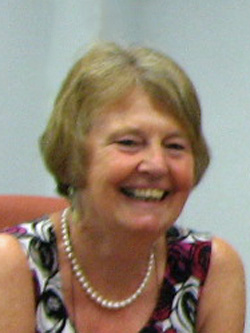 Roz Hudson, Chair of the Advisory Panel for the Caribbean Poetry Project, is now coordinating the Southern Africa Poetry Project (ZAPP) with Dr Georgie Horrell. An English graduate from Edinburgh University, she worked for UNDP in Indonesia and taught in the Bahamas before becoming a head teacher in London. In 1999 she opened Alexandra Park School, a new secondary comprehensive school in the London Borough of Haringey, judged as outstanding by Ofsted. She was involved in work with London Challenge and in the Future Leaders programme, training future head teachers. The School developed strong links with South Africa, including a partnership with a township secondary school in Tamboville, Gauteng Province, described as a model of good practice by the British Council. Further international links included a collaborative project with a secondary school in Beijing, focusing on the teaching of modern languages. She has also undertaken research into motivating disaffected boys in Trinidad, working with principals in Port of Spain. Roz Hudson, Chair of the Advisory Panel for the Caribbean Poetry Project, is now coordinating the Southern Africa Poetry Project (ZAPP) with Dr Georgie Horrell. An English graduate from Edinburgh University, she worked for UNDP in Indonesia and taught in the Bahamas before becoming a head teacher in London. In 1999 she opened Alexandra Park School, a new secondary comprehensive school in the London Borough of Haringey, judged as outstanding by Ofsted. She was involved in work with London Challenge and in the Future Leaders programme, training future head teachers. The School developed strong links with South Africa, including a partnership with a township secondary school in Tamboville, Gauteng Province, described as a model of good practice by the British Council. Further international links included a collaborative project with a secondary school in Beijing, focusing on the teaching of modern languages. She has also undertaken research into motivating disaffected boys in Trinidad, working with principals in Port of Spain. |
||
|
|
||
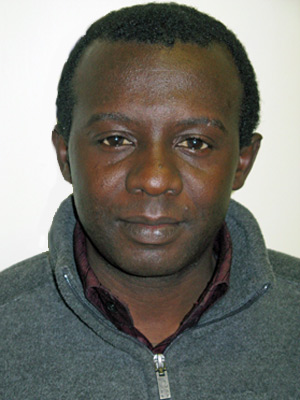 Solomon Kazzah is Head of IT at Kaduna State College of Education in Nigeria. In 2011, he was awarded a Commonwealth Professional Fellowship to spend 3 months in Cambridge working with the IT department and the Centre of Commonwealth Education to gain a broad understanding of how the Faculty uses information technology in all areas of teaching, administration and research and to consider. He was also able to use the time to plan the future expansion of ICT for teaching and administration at Kaduna State College of Education. Solomon Kazzah is Head of IT at Kaduna State College of Education in Nigeria. In 2011, he was awarded a Commonwealth Professional Fellowship to spend 3 months in Cambridge working with the IT department and the Centre of Commonwealth Education to gain a broad understanding of how the Faculty uses information technology in all areas of teaching, administration and research and to consider. He was also able to use the time to plan the future expansion of ICT for teaching and administration at Kaduna State College of Education. |
||
|
Susan is now working for Camfed, but continues to be involved with the work of the CCE, supporting the work of ASKAIDS. |
||
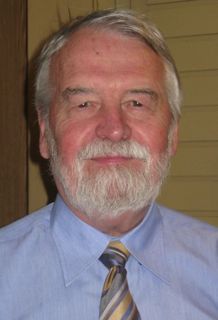 John MacBeath, Professor Emeritus at the University of Cambridge, has held the Chair of Educational Leadership since 2000. The main focus of his work for CCE was on Ghana in collaboration with the University of Cape Coast. Prior to 2000 he was Director of the Quality in Education Centre at the University of Strathclyde in Glasgow. From 1997 to 2001 he was a member of Tony Blair's Task Force on Standards and from 1997 to 1999 Scotland's Action Group Standards. In 1997 he received the OBE for services to education. John's international consultancies have included OECD, UNESCO and ILO (International Labour Organisation), the Bertelsmann Foundation, and the European Commission. He has been consultant to the Hong Kong Education Bureau on self evaluation and external review for the last seven years, and was President of the International Congress on School Effectiveness and improvement from 2006 to 2008. In June 2008 he received an honorary doctorate from the University of Edinburgh. John MacBeath, Professor Emeritus at the University of Cambridge, has held the Chair of Educational Leadership since 2000. The main focus of his work for CCE was on Ghana in collaboration with the University of Cape Coast. Prior to 2000 he was Director of the Quality in Education Centre at the University of Strathclyde in Glasgow. From 1997 to 2001 he was a member of Tony Blair's Task Force on Standards and from 1997 to 1999 Scotland's Action Group Standards. In 1997 he received the OBE for services to education. John's international consultancies have included OECD, UNESCO and ILO (International Labour Organisation), the Bertelsmann Foundation, and the European Commission. He has been consultant to the Hong Kong Education Bureau on self evaluation and external review for the last seven years, and was President of the International Congress on School Effectiveness and improvement from 2006 to 2008. In June 2008 he received an honorary doctorate from the University of Edinburgh.
|
||
|
|
||
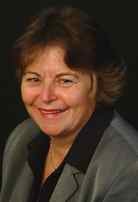 Colleen McLaughlin has left Cambridge to take up a Chair as Professor of Education at the University of Sussex. Her work in the UK has been concerned with two main areas: the personal and social aspects of education, including how vulnerable children are cared for and catered for within education, making research useful to school practitioners and also constructing research in partnership with practitioners. Colleen's work with CCE has focused on researching how young people's knowledge can be used in conjunction with teacher knowledge to enhance and develop HIV / AIDS education. Colleen McLaughlin has left Cambridge to take up a Chair as Professor of Education at the University of Sussex. Her work in the UK has been concerned with two main areas: the personal and social aspects of education, including how vulnerable children are cared for and catered for within education, making research useful to school practitioners and also constructing research in partnership with practitioners. Colleen's work with CCE has focused on researching how young people's knowledge can be used in conjunction with teacher knowledge to enhance and develop HIV / AIDS education. |
||
|
He is currently the Director of the Institute for Educational Planning & Administration (IEPA) of the University of Cape Coast and the local director of the Cambridge-Ghana Leadership for Learning Network. Prior to taking up a lectureship appointment with the University of Cape Coast, he worked with the Leadership for Learning-Cambridge Network, University of Cambridge Faculty of Education as a Post-Doctoral Research Associate. Dr Oduro’s area of specialty is Leadership, Institutional and Professional Development in Education. His research interests lay in the cultural and gender dimensions of educational leadership, teacher leadership for learning, educational leadership for peace building and social cohesion, and strategies for enhancing quality education through efficient resource and performance management. |
||
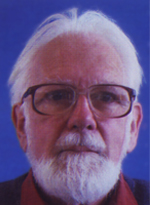 Alan Rogers (Research Fellow) is an adult educator and historian. Alan's main interest is the training of teachers of adults, particularly in the context of international development programmes. He has undertaken research and training projects widely throughout Asia and Africa and is currently engaged in projects in Uganda, Afghanistan and Sudan. Alan worked for twenty years in the Department of Adult Education at the University of Nottingham. In 1979 he became Professor of Adult Education and Director of the Institute of Continuing Education at Magee University College, Londonderry (1979-1985). In 1985, he became the founding Secretary General of the Commonwealth Association for the Education and Training of Adults, Executive Director of Education for Development and part-time Professor of Adult Education in the University of Reading (1985-1998); also Visiting Professor in the School of Educational Studies in the University of Surrey 1988-1995, Special Professor in Adult Education at the University of Nottingham from 1993 and Visiting Professor in Adult Education in the School of Education and Lifelong Learning in the University of East Anglia from 2003. Alan Rogers (Research Fellow) is an adult educator and historian. Alan's main interest is the training of teachers of adults, particularly in the context of international development programmes. He has undertaken research and training projects widely throughout Asia and Africa and is currently engaged in projects in Uganda, Afghanistan and Sudan. Alan worked for twenty years in the Department of Adult Education at the University of Nottingham. In 1979 he became Professor of Adult Education and Director of the Institute of Continuing Education at Magee University College, Londonderry (1979-1985). In 1985, he became the founding Secretary General of the Commonwealth Association for the Education and Training of Adults, Executive Director of Education for Development and part-time Professor of Adult Education in the University of Reading (1985-1998); also Visiting Professor in the School of Educational Studies in the University of Surrey 1988-1995, Special Professor in Adult Education at the University of Nottingham from 1993 and Visiting Professor in Adult Education in the School of Education and Lifelong Learning in the University of East Anglia from 2003. |
||
|
|
||
|
|
||
|
|

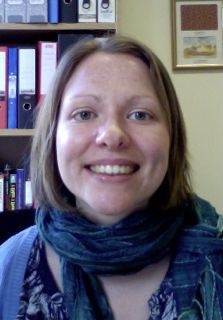 Mary Cobbett’s research interests center on the relationships between gender, sexuality and education. An overarching interest is in the role of schools (as well as non-formal educational sites) in producing, reproducing and challenging gender relations of inequality and constructing masculine and feminine identities. She is also interested in adolescent sexual health including HIV/AIDS. Methododologically, she is interested in the use of participatory and ethnographic methods. She has conducted research in Sierra Leone, Kenya and Antigua and previously worked on the ASKAIDS and gender projects at the CCE. She is currently conducting her doctoral research at Royal Holloway, University of London in collaboration with the World Association of Girl Guides and Girl Scouts (WAGGGS). This research is exploring the impact of WAGGGS’ ‘Stop the Violence’ education programme in Kenya.
Mary Cobbett’s research interests center on the relationships between gender, sexuality and education. An overarching interest is in the role of schools (as well as non-formal educational sites) in producing, reproducing and challenging gender relations of inequality and constructing masculine and feminine identities. She is also interested in adolescent sexual health including HIV/AIDS. Methododologically, she is interested in the use of participatory and ethnographic methods. She has conducted research in Sierra Leone, Kenya and Antigua and previously worked on the ASKAIDS and gender projects at the CCE. She is currently conducting her doctoral research at Royal Holloway, University of London in collaboration with the World Association of Girl Guides and Girl Scouts (WAGGGS). This research is exploring the impact of WAGGGS’ ‘Stop the Violence’ education programme in Kenya.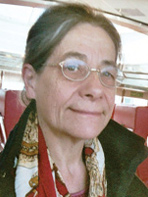 Edith Esch, a Fellow of Lucy Cavendish College, a member of the Conseil Scientifique de la Maison des Sciences de l'Homme–Lorraine and a former Senior Research Fellow at the University of Cambridge Faculty of Education, continues to be involved with the Centre for Commonwealth Education. Her main areas of interest are second language education with a special interest in the influence of the British and French pedagogical cultures in post-colonial contexts and more particularly in multilingual societies in Africa where both are in contact. These sociolinguistic and sociocultural themes in education result from her life-long interest in bilingualism (Harding-Esch and Riley, 1985, 2003) cross-linguistic communication in non-educational contexts (PhD Dissertation), and factors of language change (Jones and Esch, 2002).
Edith Esch, a Fellow of Lucy Cavendish College, a member of the Conseil Scientifique de la Maison des Sciences de l'Homme–Lorraine and a former Senior Research Fellow at the University of Cambridge Faculty of Education, continues to be involved with the Centre for Commonwealth Education. Her main areas of interest are second language education with a special interest in the influence of the British and French pedagogical cultures in post-colonial contexts and more particularly in multilingual societies in Africa where both are in contact. These sociolinguistic and sociocultural themes in education result from her life-long interest in bilingualism (Harding-Esch and Riley, 1985, 2003) cross-linguistic communication in non-educational contexts (PhD Dissertation), and factors of language change (Jones and Esch, 2002).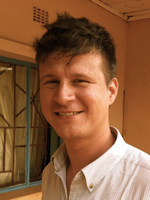 Björn Haßler, Research Fellow at the Centre for Commonwealth Education: My research and development focus is on
Björn Haßler, Research Fellow at the Centre for Commonwealth Education: My research and development focus is on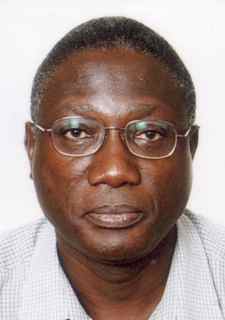 Emmanuel Kamuli's current research is on gender in education, exploring the reasons for girls' retention in areas which are acknowledged as difficult contexts for girls' education in Uganda. This study links into ongoing research by the Centre for Commonwealth Education into what keeps girls in school against the odds. Prior to joining UNICEF Uganda as an Education Specialist, Emmanuel served as a lecturer at Kyambogo University and before that as a secondary school teacher in Uganda and Kenya. He has considerable experience in education in emergency and post conflict situations and has worked on a number of consultancies in Southern Sudan, Somaliland and DR Congo. He is keen to explore ways of furthering active learner participation in education as well as innovations in teaching and learning in resource-constrained contexts.
Emmanuel Kamuli's current research is on gender in education, exploring the reasons for girls' retention in areas which are acknowledged as difficult contexts for girls' education in Uganda. This study links into ongoing research by the Centre for Commonwealth Education into what keeps girls in school against the odds. Prior to joining UNICEF Uganda as an Education Specialist, Emmanuel served as a lecturer at Kyambogo University and before that as a secondary school teacher in Uganda and Kenya. He has considerable experience in education in emergency and post conflict situations and has worked on a number of consultancies in Southern Sudan, Somaliland and DR Congo. He is keen to explore ways of furthering active learner participation in education as well as innovations in teaching and learning in resource-constrained contexts.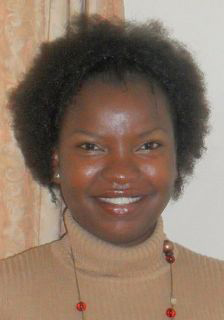 Susan Kiragu's (Kenya) research interests are centred in collaborative educational research in Africa; especially on HIV/AIDS education and behaviour change, gender and education, and the use of indigenous knowledges for curriculum development and teacher training. She strongly believes in research for social justice and intervention. Susan formerly worked as a Research Associate at CCE, involved with two qualitative projects in East Africa. The
Susan Kiragu's (Kenya) research interests are centred in collaborative educational research in Africa; especially on HIV/AIDS education and behaviour change, gender and education, and the use of indigenous knowledges for curriculum development and teacher training. She strongly believes in research for social justice and intervention. Susan formerly worked as a Research Associate at CCE, involved with two qualitative projects in East Africa. The 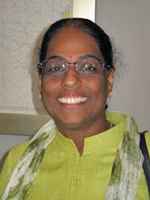 Suseela Malakolunthu is an Associate Professor in the Faculty of Education, University of Malaya. She obtained her PhD in 1999 from Michigan State University, in the area of Curriculum, Teaching, and Education Policy. From 2005-2006, under the Fulbright Senior Fellow Program, she conducted research on 'Multicultural education and leadership' at Standford University, California. In 2009 she was appointed a "Research Fellow" at the Hong Kong Institute of Education. Suseela has served as an education consultant cum trainer for school improvement projects in Bangladesh, The Maldives, and Sri Lanka and has conducted workshops and consulting services on school improvement and development in Malaysia. She has presented at International conferences, published papers in journals, and has published two books: ‘Teacher learning in Malaysia: Problems and possibilities of reform’ (2007) and ‘Fulbright chronicles: American experience, Malaysian perspective’ (2010) both by the University of Malaya Press. She also serves as the editor of the international Journal of Educational Administration and Policy Studies (JEAPS) and reviews papers for several international journals. Suseela is also a member of the ‘Community of Practice’ of the International Bureau of Education (IBE), Geneva and serves in the Executive Committee of the Fulbright Alumni Association of Malaysia (FAAM) taking an active role in the international exchange of scholars and youth participation in community development. During 2011 she spent nine months as a visiting scholar at the Centre for Commonwealth Education in Cambridge where she worked primarily with John MacBeath and Sue Swaffield on their project with the University of Cape Coast which aims to build leadership capacity in Ghanaian basic schools, a collaboration which has continued since her return to the University of Malaya.
Suseela Malakolunthu is an Associate Professor in the Faculty of Education, University of Malaya. She obtained her PhD in 1999 from Michigan State University, in the area of Curriculum, Teaching, and Education Policy. From 2005-2006, under the Fulbright Senior Fellow Program, she conducted research on 'Multicultural education and leadership' at Standford University, California. In 2009 she was appointed a "Research Fellow" at the Hong Kong Institute of Education. Suseela has served as an education consultant cum trainer for school improvement projects in Bangladesh, The Maldives, and Sri Lanka and has conducted workshops and consulting services on school improvement and development in Malaysia. She has presented at International conferences, published papers in journals, and has published two books: ‘Teacher learning in Malaysia: Problems and possibilities of reform’ (2007) and ‘Fulbright chronicles: American experience, Malaysian perspective’ (2010) both by the University of Malaya Press. She also serves as the editor of the international Journal of Educational Administration and Policy Studies (JEAPS) and reviews papers for several international journals. Suseela is also a member of the ‘Community of Practice’ of the International Bureau of Education (IBE), Geneva and serves in the Executive Committee of the Fulbright Alumni Association of Malaysia (FAAM) taking an active role in the international exchange of scholars and youth participation in community development. During 2011 she spent nine months as a visiting scholar at the Centre for Commonwealth Education in Cambridge where she worked primarily with John MacBeath and Sue Swaffield on their project with the University of Cape Coast which aims to build leadership capacity in Ghanaian basic schools, a collaboration which has continued since her return to the University of Malaya.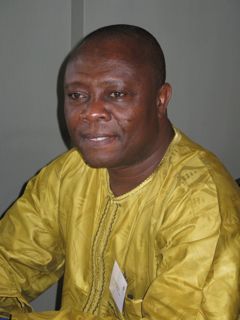 George Oduro holds a PhD (CANTAB)degree from the University of Cambridge, United Kingdom. His PhD thesis, which focused on the Professional Development of Headteachers in Ghana, won the 2nd Prize of the British Educational Leadership and Management Society (BELMAS) Best Thesis Award competition in 2004.
George Oduro holds a PhD (CANTAB)degree from the University of Cambridge, United Kingdom. His PhD thesis, which focused on the Professional Development of Headteachers in Ghana, won the 2nd Prize of the British Educational Leadership and Management Society (BELMAS) Best Thesis Award competition in 2004.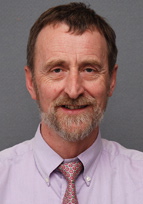 Ciaran Sugrue, Professor at University College Dublin worked as a primary teacher in disadvantaged schools in Dublin, and as a schools inspector before becoming a teacher educator. He has worked in several sub-Saharan African countries with agencies such as World Bank, UNESCO and Irish Aid, and has experience of working in the middle-east and Asia. He has been a visiting scholar at the faculty of education in Stanford University and at the International Centre for Educational Change at OISE/ University of Toronto and was until recently Reader in School Leadership and School Improvement at University of Cambridge Faculty of Education. His research interests include Leadership, Continuing Professional Development, and Educational Change in Developed and Developing Country contexts. With CCE he is currently involved in a study of Pedagogy and Leadership in Tanzania.
Ciaran Sugrue, Professor at University College Dublin worked as a primary teacher in disadvantaged schools in Dublin, and as a schools inspector before becoming a teacher educator. He has worked in several sub-Saharan African countries with agencies such as World Bank, UNESCO and Irish Aid, and has experience of working in the middle-east and Asia. He has been a visiting scholar at the faculty of education in Stanford University and at the International Centre for Educational Change at OISE/ University of Toronto and was until recently Reader in School Leadership and School Improvement at University of Cambridge Faculty of Education. His research interests include Leadership, Continuing Professional Development, and Educational Change in Developed and Developing Country contexts. With CCE he is currently involved in a study of Pedagogy and Leadership in Tanzania.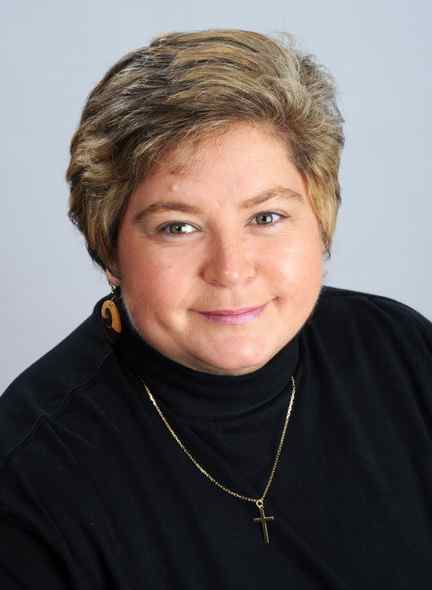 Sharlene Swartz is a sociologist, youth activist and research director at the Human Sciences Research Council in South Africa. She holds undergraduate degrees in Science (University of the Witwatersrand) and Theology (University of Zululand), a Master's degree in Education at Harvard University and a PhD in the Sociology of Education at the University of Cambridge. Her research interests include the sociology of morality, peer and sex education, and youth development. Before embarking on graduate studies, Sharlene spent 12 years at a youth NGO where she pioneered peer-led social justice and lifeskills programmes. She is the author of three books: Teenage Tata: Voices of young fathers in South Africa (2009, HSRC Press): Ikasi: The Moral Ecology of South Africa's Township Youth (2009, Palgrave Macmillan and Wits University Press): and Moral Education in Sub-Saharan Africa: Conflict, culture, economics and AIDS. She is currently working on the African Sexual Knowledges project at CCE.
Sharlene Swartz is a sociologist, youth activist and research director at the Human Sciences Research Council in South Africa. She holds undergraduate degrees in Science (University of the Witwatersrand) and Theology (University of Zululand), a Master's degree in Education at Harvard University and a PhD in the Sociology of Education at the University of Cambridge. Her research interests include the sociology of morality, peer and sex education, and youth development. Before embarking on graduate studies, Sharlene spent 12 years at a youth NGO where she pioneered peer-led social justice and lifeskills programmes. She is the author of three books: Teenage Tata: Voices of young fathers in South Africa (2009, HSRC Press): Ikasi: The Moral Ecology of South Africa's Township Youth (2009, Palgrave Macmillan and Wits University Press): and Moral Education in Sub-Saharan Africa: Conflict, culture, economics and AIDS. She is currently working on the African Sexual Knowledges project at CCE.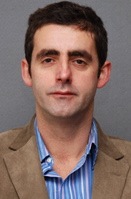 Dominic Wyse has recently taken up a chair at the University of London, Institute of Education but continues to collaborate with colleagues at CCE on the Pedagogy and Leadership in Tanzania project. Dominic's research focuses on curriculum, pedagogy and policy. A major strand of his work being the teaching of English, language and literacy. Dominic is editor (with Richard Andrews and Jim Hoffman) of The Routledge International Handbook of English, Language and Literacy Teaching. He also works on creativity, and educational innovation. Dominic's international experience includes working with the British Council in the area of children's rights in Jordan, and in the Ukraine.
Dominic Wyse has recently taken up a chair at the University of London, Institute of Education but continues to collaborate with colleagues at CCE on the Pedagogy and Leadership in Tanzania project. Dominic's research focuses on curriculum, pedagogy and policy. A major strand of his work being the teaching of English, language and literacy. Dominic is editor (with Richard Andrews and Jim Hoffman) of The Routledge International Handbook of English, Language and Literacy Teaching. He also works on creativity, and educational innovation. Dominic's international experience includes working with the British Council in the area of children's rights in Jordan, and in the Ukraine.